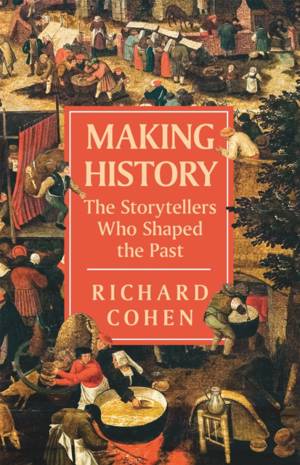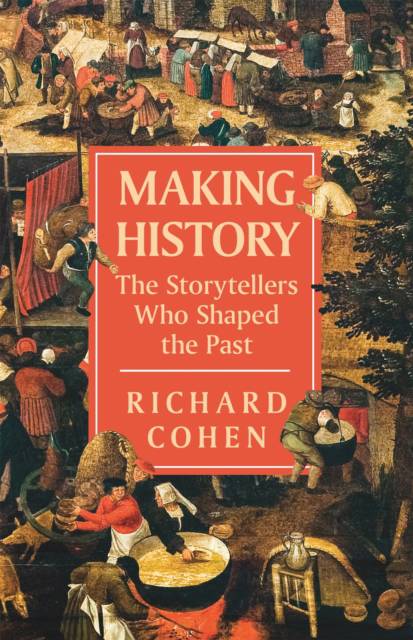
- Afhalen na 1 uur in een winkel met voorraad
- Gratis thuislevering in België vanaf € 30
- Ruim aanbod met 7 miljoen producten
- Afhalen na 1 uur in een winkel met voorraad
- Gratis thuislevering in België vanaf € 30
- Ruim aanbod met 7 miljoen producten
Zoeken
€ 28,95
+ 57 punten
Uitvoering
Omschrijving
In this authoritative and entertaining book, Richard Cohen reveals how professional historians and other equally significant witnesses (such as the writers of the Bible, major novelists, dramatists, journalists and political propagandists) influence what become the accepted records of human experience. Is there, he asks, even such a thing as 'objective' history? The depth of Cohen's inquiry and the delight he takes in his subjects includes the practitioners of what he calls 'Bad History,' those thieves of history who twist reality to glorify themselves and conceal their or their country's behaviour.
Cohen investigates the published works and private utterances of our greatest historical thinkers to discover the agendas that informed their views of the world, and which in so many ways have informed ours. From the origins of history-writing, when such an idea seemed itself revolutionary, through to television and the digital age, MAKING HISTORY abounds in captivating figures brought to vivid life, from Thucydides and Tacitus to Voltaire and Gibbon, from Winston Churchill to Mary Beard. Rich in character, complex truths and surprising anecdotes, the result is a unique exploration of both the aims and craft of history-making. It will lead us to think anew about our past and ourselves.
Cohen investigates the published works and private utterances of our greatest historical thinkers to discover the agendas that informed their views of the world, and which in so many ways have informed ours. From the origins of history-writing, when such an idea seemed itself revolutionary, through to television and the digital age, MAKING HISTORY abounds in captivating figures brought to vivid life, from Thucydides and Tacitus to Voltaire and Gibbon, from Winston Churchill to Mary Beard. Rich in character, complex truths and surprising anecdotes, the result is a unique exploration of both the aims and craft of history-making. It will lead us to think anew about our past and ourselves.
Specificaties
Betrokkenen
- Auteur(s):
- Uitgeverij:
Inhoud
- Aantal bladzijden:
- 784
- Taal:
- Engels
Eigenschappen
- Productcode (EAN):
- 9781474615785
- Verschijningsdatum:
- 17/03/2022
- Uitvoering:
- Paperback
- Afmetingen:
- 234 mm x 196 mm
- Gewicht:
- 1036 g

Alleen bij Standaard Boekhandel
+ 57 punten op je klantenkaart van Standaard Boekhandel
Beoordelingen
We publiceren alleen reviews die voldoen aan de voorwaarden voor reviews. Bekijk onze voorwaarden voor reviews.








